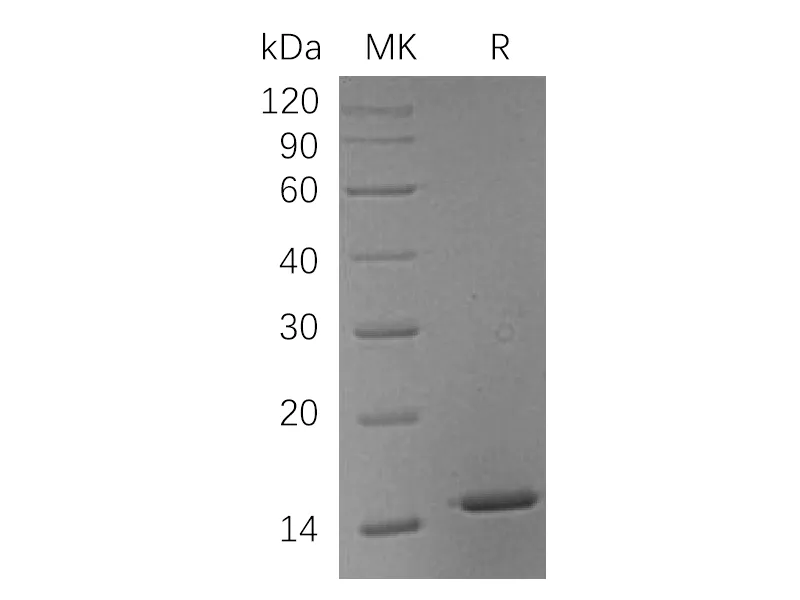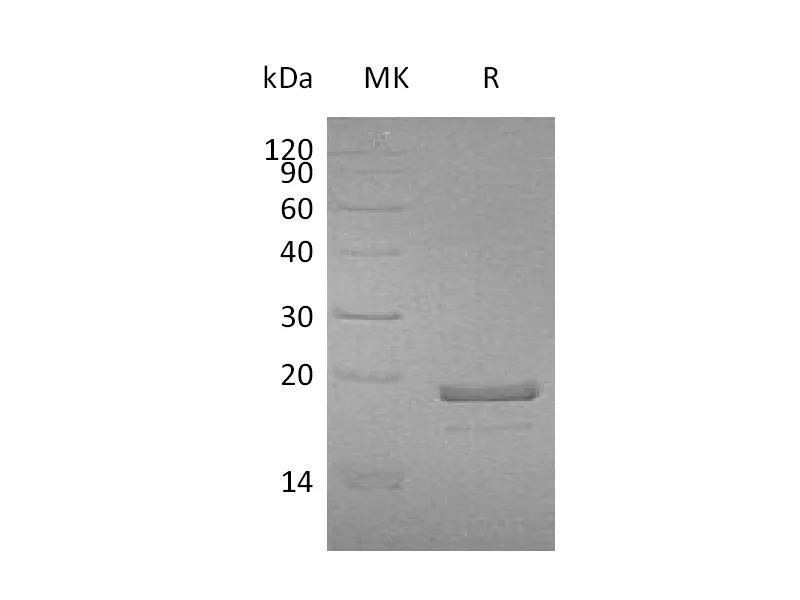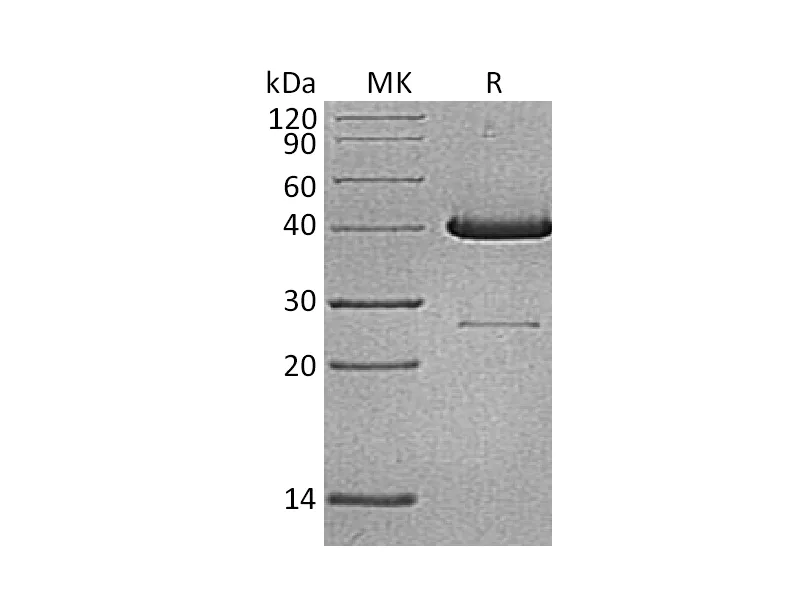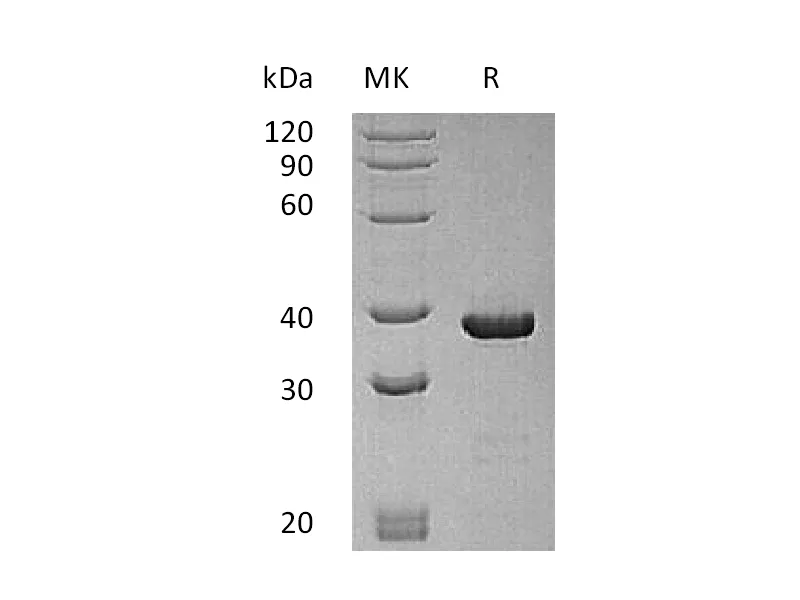| 产品名称 |
Recombinant Human CD63 (N-6His) |
| 英文名称 |
CD63 |
| 纯度 |
Greater than 95% as determined by reducing SDS-PAGE |
| 内毒素 |
<1 EU/µg as determined by LAL test. |
| 蛋白构建 |
Recombinant CD63 antigen is produced by our Mammalian expression system and the target gene encoding Ala103-Val203 is expressed with a 6His tag at the N-terminus. |
| Accession |
P08962 |
| 表达宿主 |
Human Cells |
| 种属 |
Human |
| 预测分子量 |
13.1 KDa |
| 制剂 |
Lyophilized from a 0.2 μm filtered solution of PBS, pH 7.4. |
| 运输方式 |
The product is shipped at ambient temperature.Upon receipt, store it immediately at the temperature listed below. |
| 稳定性&储存 |
Store at ≤-70°C, stable for 6 months after receipt.Store at ≤-70°C, stable for 3 months under sterile conditions after opening. Please minimize freeze-thaw cycles. |
| 复溶 |
Always centrifuge tubes before opening.Do not mix by vortex or pipetting.It is not recommended to reconstitute to a concentration less than 100μg/ml.Dissolve the lyophilized protein in distilled water.Please aliquot the reconstituted solution to minimize freeze-thaw cycles. |
| 分子别名 |
| CD63 antigen; Lysosomal-associated membrane protein 3; LAMP-3; Melanoma-associated antigen ME491; OMA81H; Ocular melanoma-associated antigen; Tetraspanin-30; Tspan-30; CD63 |
| 背景介绍 |
| CD63 is a member of the tetraspanin family, as a TIMP-1 interacting protein. Functions as cell surface receptor for TIMP1 and plays a role in the activation of cellular signaling cascades. The protein plays a role in the activation of ITGB1 and integrin signaling, leading to the activation of AKT, FAK/PTK2 and MAP kinases. It can promotes cell survival, reorganization of the actin cytoskeleton, cell adhesion, spreading and migration, via its role in the activation of AKT and FAK/PTK2. It also plays a role in VEGFA signaling via its role in regulating the internalization of KDR/VEGFR2. Plays a role in intracellular vesicular transport processes, and is required for normal trafficking of the PMEL luminal domain that is essential for the development and maturation of melanocytes. The protein is important in the adhesion of leukocytes onto endothelial cells via its role in the regulation of SELP trafficking. |
注意事项
本司产品仅用于科研,不用于临床诊断和治疗




